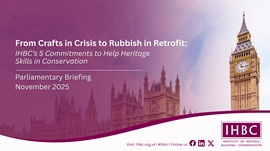The Royal Town Planning Institute comments on infrastructure assessment requirements
In August 2016, the Royal Town Planning Institute (RTPI) raised concerns about the proposed method of assessing infrastructure requirements in a response to the National Infrastructure Commission’s (NIC) consultation.
The Royal Town Planning Institute (RTPI) wrote:
The ability to unlock large housing developments should be made an explicit criterion in assessing infrastructure, the RTPI said in its response to a National Infrastructure Commission’s (NIC) consultation.
This is an opportunity for the government to use infrastructure to help solve the housing crisis, bridge the north-south divide in England and tackle climate change. Our approach would ensure infrastructure acts as a catalyst to unlock large scale housing, jobs and economic growth.
The RTPI is concerned that a method of assessing infrastructure ‘need’, based only on existing patterns of demand would risk continued investment in London and the South East at the expense of other areas.
In its response to the NIC’s consultation on how infrastructure should be assessed and prioritised, the Institute proposes a ‘feedback loop’ methodology whereby the Commission’s proposals for national infrastructure would invite matching plans from local authorities and developers for major housing growth. These plans would then be fed back into the original needs assessment, allowing the Commission to prioritise and fund infrastructure that would unlock housing.
James Harris, RTPI Policy and Networks Manager, said: ‘This is an opportunity for the government to use infrastructure to help solve the housing crisis, bridge the north-south divide in England and tackle climate change. Our approach would ensure infrastructure acts as a catalyst to unlock large scale housing, jobs and economic growth.’
In its response the RTPI also called on the NIC to:
- Assess the impact of different infrastructure plans on the shape and density of the built environment.
- Factor in existing plans and aspirations for local and regional infrastructure, from local government, Local Enterprise Partnerships and private companies, by appointing commissioners with explicit responsibilities for the nations and English regions.
- Examine options for tackling the serious levels of water stress expected in Greater London, the South East and the East of England given their high household growth projections.
- Look at the potential benefits of devolved flood defence spending to combined authorities, and planning for flood risk over an 80-100 year time period.
- Consider the impacts of infrastructure proposals on natural resources and the environment, through an ‘ecosystems approach’ in the assessment.
The UK Government tasked the NIC with identifying the country’s long-term infrastructure needs, creating a strategic infrastructure vision over a 30-year period and making recommendations for how identified infrastructure needs should be met through the publication of a National Infrastructure Assessment. The NIC’s remit covers the UK; although Scotland and Wales have similar national commissions. The RTPI has called for the NIC to work in conjunction with these bodies to ensure a joined-up approach.
[edit] Find out more
[edit] Related articles on Designing Buildings Wiki
- Royal Town Planning Institute
- Infrastructure
- National Infrastructure Commission
- Climate change
- Local Authorities
- Developers
- Built Environment
- Local Enterprise Partnerships
- Combined Authorities
[edit] External references
- The Royal Town Planning Institute - http://www.rtpi.org.uk/briefing-room/news-releases/2016/august/use-infrastructure-to-unlock-housing-and-growth/
IHBC NewsBlog
RICHeS Research Infrastructure offers ‘Full Access Fund Call’
RICHesS offers a ‘Help’ webinar on 11 March
Latest IHBC Issue of Context features Roofing
Articles range from slate to pitched roofs, and carbon impact to solar generation to roofscapes.
Three reasons not to demolish Edinburgh’s Argyle House
Should 'Edinburgh's ugliest building' be saved?
IHBC’s 2025 Parliamentary Briefing...from Crafts in Crisis to Rubbish Retrofit
IHBC launches research-led ‘5 Commitments to Help Heritage Skills in Conservation’
How RDSAP 10.2 impacts EPC assessments in traditional buildings
Energy performance certificates (EPCs) tell us how energy efficient our buildings are, but the way these certificates are generated has changed.
700-year-old church tower suspended 45ft
The London church is part of a 'never seen before feat of engineering'.
The historic Old War Office (OWO) has undergone a remarkable transformation
The Grade II* listed neo-Baroque landmark in central London is an example of adaptive reuse in architecture, where heritage meets modern sophistication.
West Midlands Heritage Careers Fair 2025
Join the West Midlands Historic Buildings Trust on 13 October 2025, from 10.00am.
Former carpark and shopping centre to be transformed into new homes
Transformation to be a UK first.
Canada is losing its churches…
Can communities afford to let that happen?














